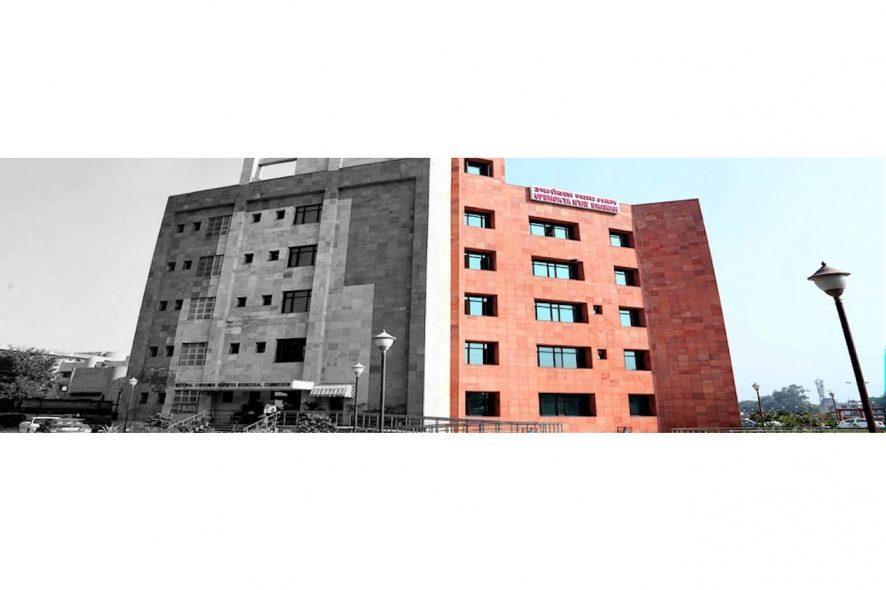National Consumer Disputes Redressal Commission (NCDRC): The Division Bench of Anup K Thakur (Presiding Member) and Dr S.M. Kantikar (Member) while addressing the present matter of contributory negligence, expressed that:
“…grant of compensation to remedy the medical wrong/negligence is within the realm of law of torts.”
Complainant 1’s wife Complainant 2 during her pregnancy was under the care of OP 1. As soon as the labor pains started, Complainant 2 was admitted to OP 3—KMC and on conducting the delivery of the patient a healthy female baby was born.
Later it was informed to Complainant 1 that the baby was suffering from fever and added that the child needed ICU care and nothing major was there.
Complainant 1 requested the OP 2 to show the baby, but she was not willing to show it, however after a lot of persuasions the cloth was unwrapped from the baby which revealed a bandage put on lower portion of both the legs.
Upon further enquiries, OP 2 admitted that the baby sustained burn injuries because of a rod heater kept nearby. It was alleged that the entire staff went to attend another delivery and they forgot the instant baby, putting near the rod heater. The mother and the child were kept under treatment at the KMC for two months. The baby’s skin grafting of both legs was done using the mother’s skin.
On consulting at another Hospital, it was informed to the complainants that due to the thermal burn injuries the baby had lost three toes in the left and two toes in the right side because of dry gangrene.
The Complainant further submitted that the baby was under regular treatment for several years at Apollo Hospital, New Delhi and underwent several corrective operations & plastic surgery. The Complainants suffered mental agony and incurred huge expenditure on the treatment of their child due to the alleged medical negligence by the Opposite Parties.
Analysis, Law and Decision
Bench noted that the burns suffered by the baby were thermal burns due to dry heat from the hot air blower and during this time the baby was under the care of her grandmother. Hence complainant’s allegation that a rod heater was kept near the baby was dismissed.
Due to severe winter in the month of December, the hospital provided a hot air blower to keep the room sufficiently warm. Logically any prudent person or the Staff shall not put the blower facing towards the newborn. The evidence of staff nurse Ms Anis revealed that the blower was initially not directly facing the baby; however, after attending another delivery when she came back; noticed the blower was turned towards the baby and the grandmother was not present there.
In Commission’s opinion, the hospital staff as well as the patient’s attendant-grandmother both were responsible for the unfortunate mishap and in the charge sheet the charge under Section 338 of Penal Code, 1860 was found proved against the staff nurse Ms Anis.
While addressing the issue of maintainability o the complaint, Commission relied upon the decision of the Supreme Court in Spring Meadows Hospital v. Harjol Ahluwalia, (1998) 4 SCC 39 held that the parents of victim can file the complaint. The court acknowledged the importance of granting compensation to the parents of a victim of medical negligence in lieu of their acute mental agony and the lifelong care and attention they would have to give to the child.
No negligence on the part of OP 1 and 2 was found while conducting the uneventful delivery of the healthy baby and the care after the burns, however, the hospital –OP 3 was held liable vicariously.
It is settled law that the hospital is vicariously liable for the acts of its doctors in various decisions of Supreme Court in Achutrao Haribhau Khodwa v. State of Maharashtra, (1996) 2 SCC 634, Savita Garg v. National Heart Institute, (2004) 8 SCC 56, which also followed in Balram Prasad v. Kunal Saha, (2014) 1 SCC 384.
It is known that living with a disabled child can have profound effects on the entire family–parents, siblings, and other family members. Far-reaching effects associated with raising a disabled child are the time and financial costs, physical and emotional demands, healthcare expense and logistical complexities.
Contributory Negligence
Further, it was added that it would be pertinent to note that the newborn was in the custody of grandmother who failed in her duty of care towards the baby. According to the evidence of the staff nurse Ms Anis, the grandmother was not present in the room whereas the blower was facing towards the baby. Thus it can be inferred that no other than grandmother put the blower facing the baby. Thus, it was contributory negligence in the instant case.
Contributory negligence breaks the causal connection between the defendant’s negligence and plaintiff’s injury or loss and frequently pleaded in defense in the case of negligence. In the instant case, the affidavit of nurse Ms Anis established that the grandmother (complainants’ attendant) contributed to the burn injury of the newborn.
In view of the principle of restitution in integrum, Bench held KMC hospital to be vicariously liable for the medical negligence.
It was noted that 15 years have passed since the time the complaint was filed, with regard to quantum of award of compensation, bench relied upon the Supreme Court decisions in Malay Kumar Ganguly v. Sukumar Mukherjee, (2009) 9 SCC 221, V. Krishnakumar v. State of T.N., (2015) 9 SCC 388; Balram Prasad v. Kunal Saha, (2014) 1 SCC 384.
While concluding, it was held that a lump sum compensation to the sum of Rs 40 lakh shall be just and adequate. The contributory negligence is evident in the instant case, therefore the liability of KMC hospital shall restrict up to 50%. Accordingly, OP 3 Kanpur Medical Center Pvt. Ltd. was directed to pay Rs 20 lakh to the Complainants (parents of the child). [Mohit Srivastava v. Dr Neelam Mishra, 2021 SCC OnLine NCDRC 40, decided on 04-03-2021]






